My naked body is not your right
I used to think a circulated photo of me naked meant I’d never succeed in life, at least not traditionally— I’d never be president, the New York Times would never hire me, or my bosses in the corporate world would see my nudes, smell scandal, and promptly fire me. Once, someone caught me on camera in underwear at Dolores Park, and I reposted it on social media. My aunt thought my career was over.
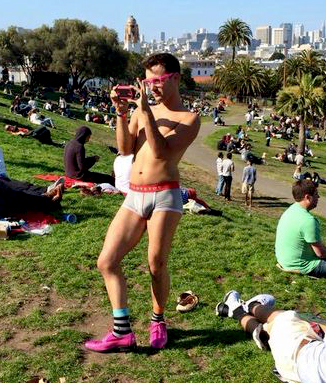
Nowadays, nudity is so ubiquitous and commodified like everything else. Why even share naked photos freely when you can make money on OnlyFans? Leverage your naked body with porn Twitter! For those of us with less ambition, we still keep a pack of selfies at tasteful angles of the necessary assets: bottoms have a lot of 🍑, tops it’s the 🍆. But it’s good to have a selection of both, and throw in a few descriptive shots of your torso and face. Try to keep them updated.
This is all preamble to the floor show, which is that someone asked me “anymore pics” again.
“Anymore pics” is not a pickup line. No one asked you out, they didn’t offer you money or present you with flowers. They didn’t compliment your intellect or appearance. Calling this question a “baseline effort” should really be an insult to baseline efforts, but there it is: two words that don’t exist in the English dictionary, that if you don’t answer with a curated set of nudes will end the interaction or spark an argument.
And make no mistake: This was about nudes.
He asked me “anymore pics” after several days and maybe months of talking, and he had sent numerous photos of his own, unprompted: mostly him in a speedo at Marshall’s Beach. One was his dick. The other was his COVID vaccine card with a 😈 after it. Finally after much patience, the question comes, and I am of course so done after spending a decade on Grindr— AKA this piece of crap masquerading as the solution for social and sexual connection in the gay community. So I reply thus:
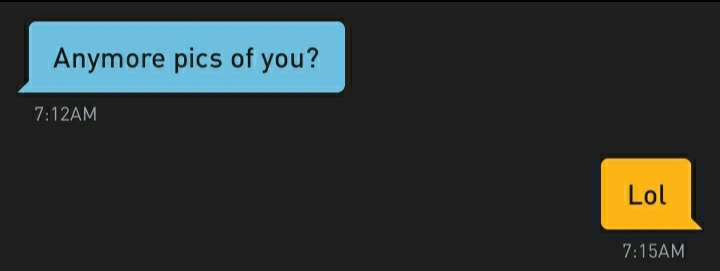
I’m one of those assholes who types things in one sentence—send—another sentence, send. So while I crafted an extended answer, he instead wrote first:

Capitalized letters, proper punctuation— the man knows what he’s saying and means it. Yet somehow he glossed over my name, my website, my Instagram, Twitter, and Facebook all embedded in my Grindr profile. Never mind that I’d never ask for photos at this point because I knew what he looked like. So now I’m a jerk for not reciprocating something I never wanted.
Adding insult to injury, he knows me. He’s attended my events IRL, and we’ve talked online before. I feel like he asked me out in 2019 after my Valentine’s Day post.
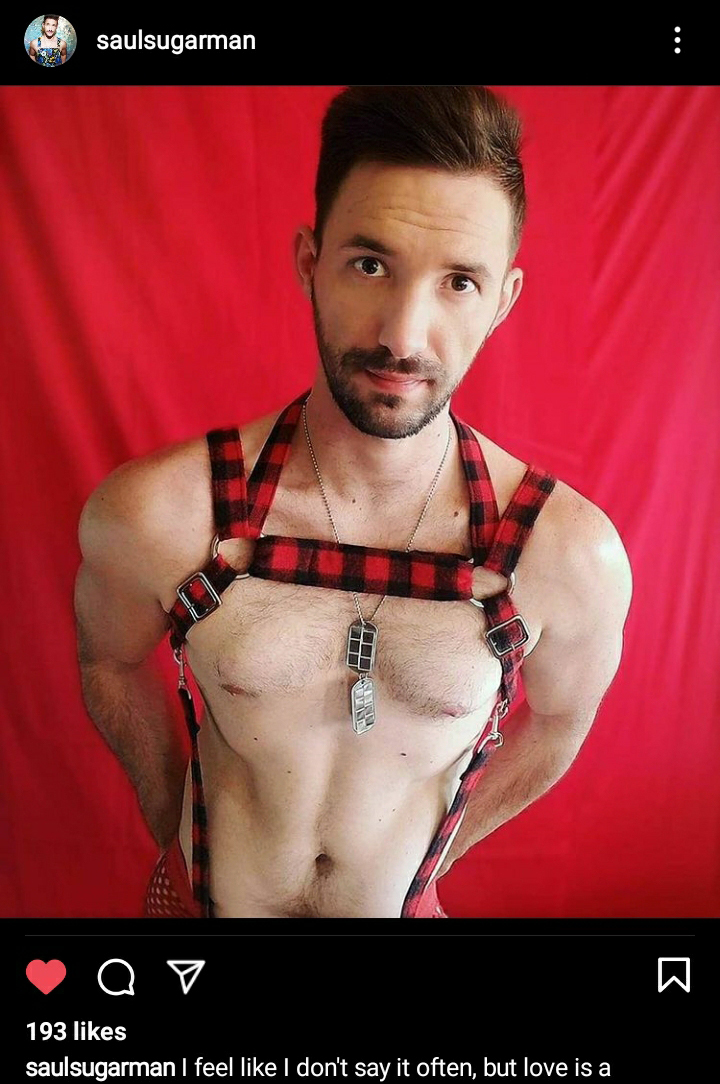
And he definitely asked me out last year— politely, even.

But it’s obvious this time he wanted my nudes. I would have sent them, too, if it made sense to do so. In fact it’s no secret I am sex positive— I’ve bent over many times for the Bay Area gay community, and will again; All I really ask is we treat each other with respect. I don’t like to be ignored after a hookup. And with respect to Grindr and related apps, I don’t like sending pointless nudes when the prospect of getting together is both nebulous and unappealing.
He was fairly ripped, pretty face, and thanks to his narcissism, I already knew his 🍆 would get the job done.
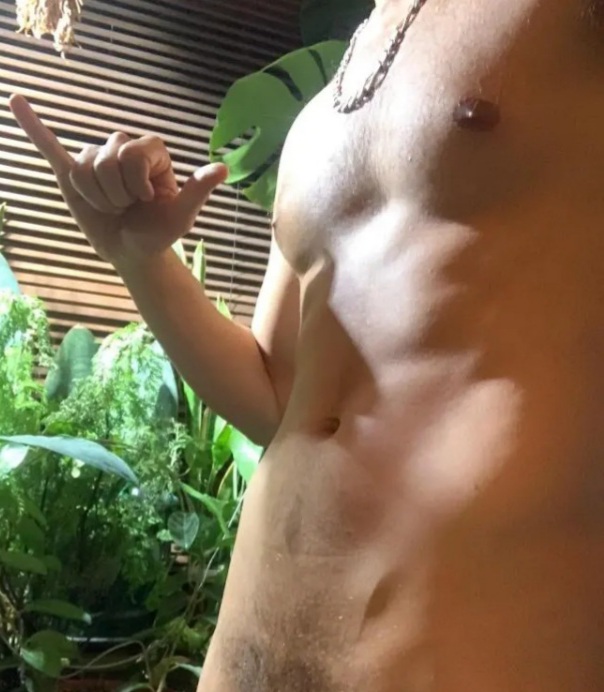
But everything about his approach smelled wrong; One of those conversations he probably had four times a day with any doe-eyed trollop gullible enough to drool over him. I felt like a placeholder for his sexual needs du jour, and sometimes that works. It is Grindr, after all— The intent of the platform is sort of built into the name.
But only sort of. It doesn’t negate the fact that two humans use it, and the app experience sort of glosses over gay culture generally. Strike that, because the problem is us: We gloss over gay culture when using Grindr.

The guy I’m shading today did not send that message, but I see it often enough. Just today I told a guy on Scruff that he’s far away and an inconsistent communicator. He replied with this gem:

• “Don’t blame me, blame the app.”
• “If you’re not looking for sex, go somewhere else.”
It wasn’t 20 years ago I remember AOL chatrooms. Requests for photos were met with “I don’t have a scanner” or pocket Canon Powershot. Hooking up felt considerably shadier: a man would pick me up in his car and drive off, and there was no such thing as Uber. Before age 21, I stood outside gay bars and waited for guys to strike up conversations. They did, and sex ensued. Craigslist was a thing and so was gay.com. Grindr 1.0 were sites like Adam4Adam, dudesnude and gaydar.
Two decades sounds long but it’s nothing. These websites were among the first glimpse the community had toward safe connection completely outside the judgmental eyes of the heterosexual world.
We talk constantly about how it’s destroyed the traditional gay bar but it’s so much more than that: We have—in less than one generation—revolutionized our desires and expectations for social and sexual interaction, in a way that’s unique unto itself because the LGBTQ community never had that privilege before.
But in the 12 years since Grindr’s launch, we now take it for granted. Being naked is no longer a choice but a rule: “You have a camera, use it, or I don’t want to know you.” And this isn’t about seeing a face photo, but an aggressive demand to invade privacy.
The guy, of course, waved it off as something else. The remaining conversation:
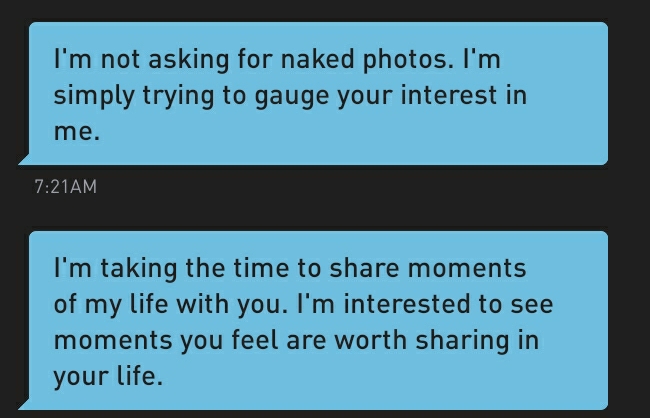
I think he was lying.
In light of everything about our past interaction that stretches back more than two years, there was no need to see any more of me and especially not to consider sharing photos as a referendum on my interest in meeting.
I struggled whether to include our extended exchange because it’s too focused on the encounter, and the issue is much bigger. Still, it felt unfair to not show his side of things.
So I reminded him of all the photos on my social media, plus five of them on the profile.
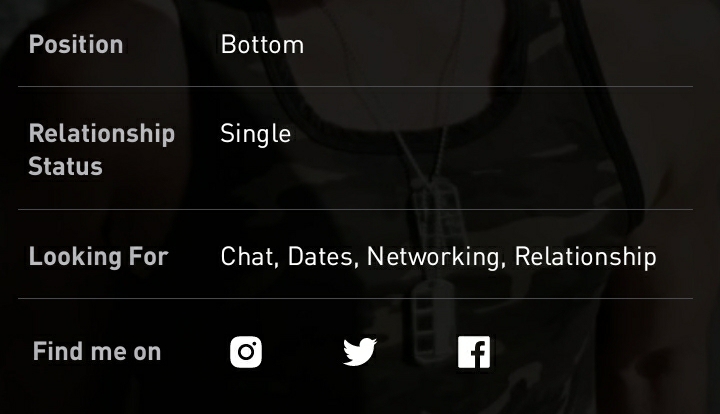
Then it mostly ended here:
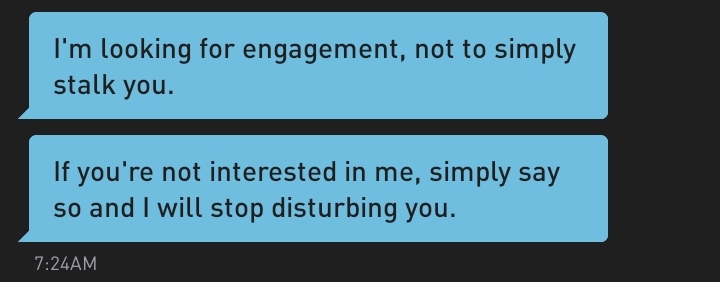
Right, of course! It’s my fault, and I’m not interested. Looking back on it, I could have shared more non-nudes to see how that went.
What bothers me is that in the weeks leading up to this spat, he talked about seeing my apparel business and asking me when I’d start making speedos. He’d been to my events while barely acknowledging my existence. He’d asked me out before online. And he had even unsuccessfully tried to hook up with me on Grindr, before any of the later stuff happened.
Again, the focus is too much on him when this happens all the time.
Grindr, Instagram, Facebook, Scruff, so many apps nowadays are as visual as they are ephemeral; Why bother to focus on what’s now when what’s next is right there? Why should he or anyone have to spend more than a minute debating what will happen between us?
This new normal is so embedded in our brains that it no longer matters whether it happens with a complete stranger or someone in your social circle; I’ve had numerous moments spanning years where guys forget they’ve been total assholes and reintroduce themselves. In key plot points made for another essay: some of them have set up dates with me without realizing we’d been out already.
Occasionally—rarely—this is nice. I’m not above being shallow, and the guy from today is hot enough for a second-chance clean slate. Most often though, it is scary to think how far we’ve come that “anymore pics” is acceptable demanding language, and if one guy doesn’t like it, try, try again. Even if you’re trying again with the same guy, because who remembers that anyway?
I end today with a common mantra on my Scruff profile for more than two years:
“Let’s try and talk in a way that suggests we are part of the same community. This app creates only the illusion of anonymity— because in reality, we both are a heartbeat away from swapping STIs, or exchanging comments directly to each other in real life, or behind each others’ backs, to the many people we all know and share in common.”
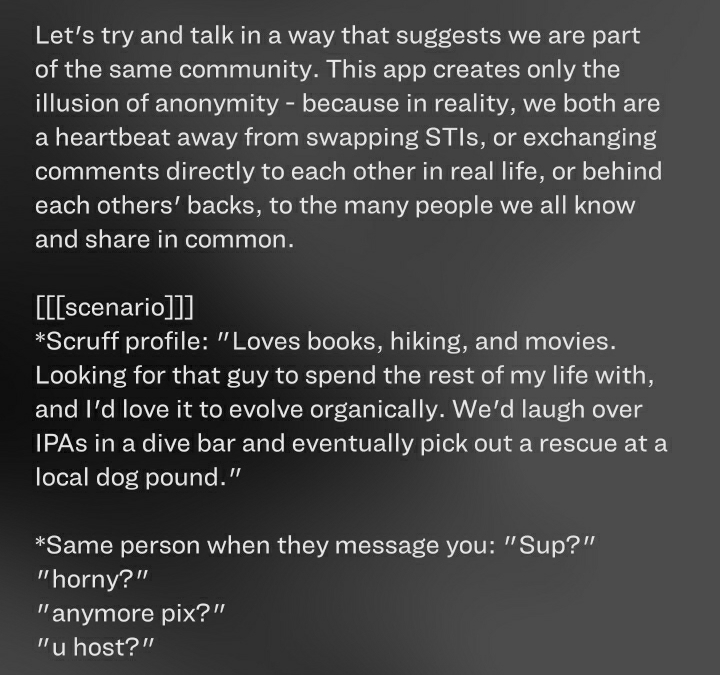
Support me on Patreon here.
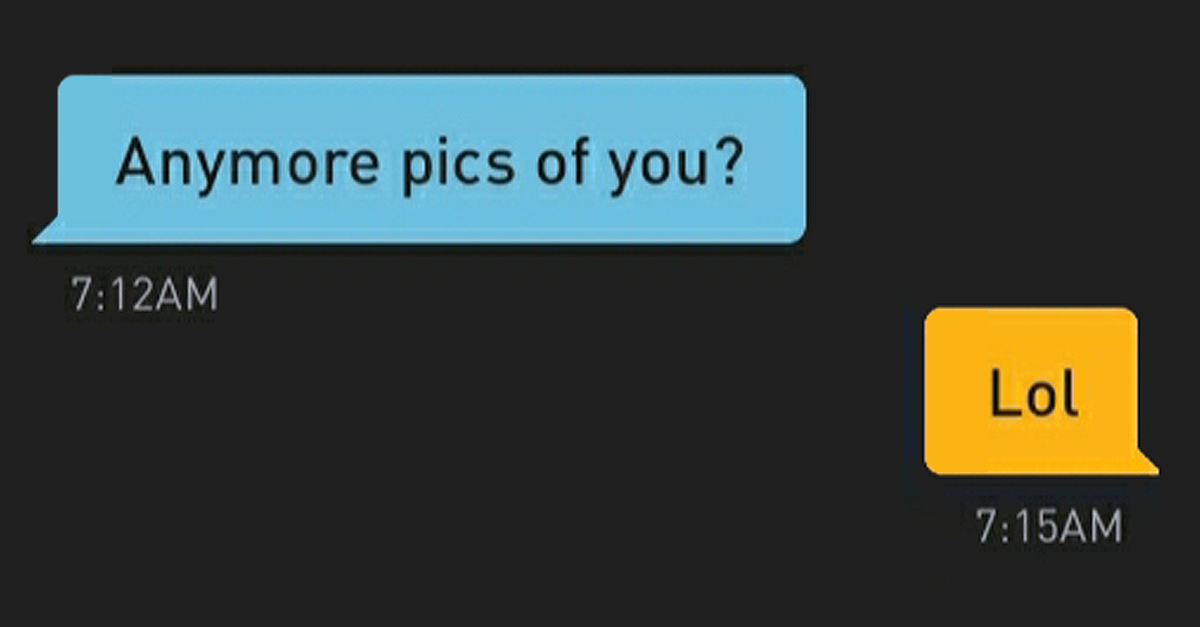
Leave a Reply